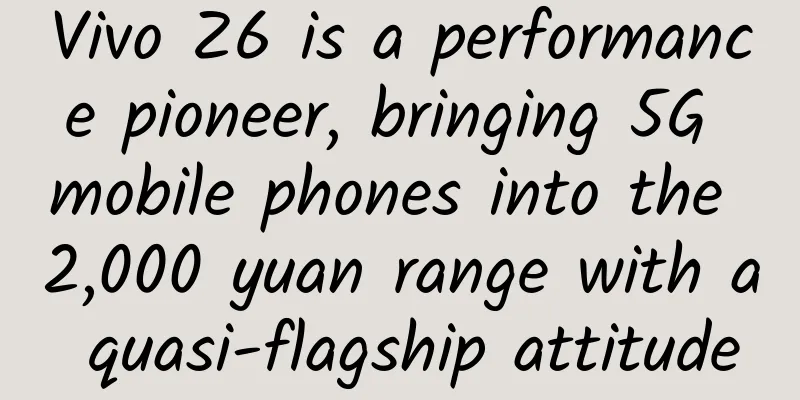Why hasn’t there been a second “WeChat” in Europe and the United States?

|
Recently, it was reported that Ted Livingston, the founder and CEO of Canada Kik, said that the chat application that was once not recognized in the West has now become a general trend. Ted Livingston believes that the company that can truly develop the "WeChat of the West" may not be Facebook, and may not even come from Silicon Valley. In his opinion, Kik has the potential to become the "WeChat of the West". Whether KIK can become the WeChat of the West is not discussed for the time being. What I want to discuss is why there has never been a second WeChat in the Western world? We know that WhatsApp is a pioneer product in the field of mobile social networking. Whether it is China's WeChat, South Korea's KaKao Talk or Japan's Line, they are all derived from WhatsApp. However, the current development momentum of WeChat and Line is obviously catching up. We can see that Tencent's second quarter profit report this year mentioned that the number of monthly active users of WeChat has risen to 438 million, which is forming a trend of surpassing the number of active users of WhatsApp. WhatsApp is a product positioned for global users. With the gradual rise of WeChat, KaKao Talk and Line in Asia, it can be seen that the influence of WhatsApp in Asia is gradually declining. We know that in the Internet world, there are only two countries in the world, the United States and China. Google, Amazon, Facebook, etc. in the United States are targeting global products and ecosystems. The domestic BAT has successfully built an Internet ecosystem based on China's national conditions in its home country, and has effectively built its own sphere of influence. The Internet products of the United States, based on the deviation in the understanding of China's policies, national conditions, and user needs, have made these giants control the global Internet outside of China, but all of them have failed in the Chinese market. But in general, from technology to the construction of the ecosystem and the scope of international influence, there is no doubt that the American Internet is obviously ahead of the domestic Internet. Now in the era of mobile Internet, in the field of mobile social networking, the speed of Asia's rise is even more dazzling. We can see that there are roughly four global mobile social products based on mobile phones: WhatsApp, WeChat, KaKao Talk, and Line. The latter three are all from Asia. The West has yet to see a truly dominant product in the mobile social space WeChat dominates the domestic mobile social market, while Line and KaKao Talk control the mainstream mobile social market users in Japan and South Korea respectively. But does WhatsApp control the mobile social market in the West? I think not. You know, in the Western world, the number of Facebook Messager users is still very high, but the number of users of the American communication application Tango is also 200 million. As mentioned earlier, a mobile social software called Kik has emerged in the Western world. It is understood that Kik currently has 185 million young users, and the application considers its main competitors to be Snapchat and Facebook. Apple's iMessage user base is also huge. It is reported that the number of messages sent by Apple users to iMessage every day has reached 2 billion. Although WhatsApp is cross-platform and iMessage is Apple's software layout based on iOS, Apple's social layout based on the iOS platform has undoubtedly also formed a strong impact on WhatsApp. Even popular mobile social applications in the United States include Snapchat and Instagram, the latter of which has been acquired by Facebook. Therefore, it can be seen that in Asia, a single social product can dominate its respective local market, while in the West, mobile social software appears to be scattered and segmented, and there has never been a truly dominant mobile social product. From instant messaging to mobile social networking: Western products are always tool-based Why is this happening? We can see that WhatsApp and WhatsApp have been mobile chat products since their birth, while WeChat has been continuously extending from the social field. Its ultimate vision is to connect everything, and social networking is just one of its attributes. Users have different focuses on WeChat, which brings different positioning and experience needs. In fact, from the past MSN to the current WhatsApp and iMessage, in the minds of Westerners, instant messaging has always been a positioning tool attribute, whether it is PC or mobile. In the eyes of many founders of mobile social applications in Silicon Valley, a single product function is a good user experience. We can see that in Western mobile, WhatsApp is a single chat application, Snapchat is a social communication application that burns after reading, and Instagram is mainly a social sharing of pictures. There is even a weird social app like YO that can only send a "Yo". And Tinder has even created a flip-up mobile dating app. Although these social communication products that pursue minimalism can capture a group of interested users in the market segments, they can never attract the majority of mainstream users. Industry insiders have pointed out that when someone asks Tinder why they don’t add new features, the product team always says, “We don’t want to ruin the user experience. We want to build a pure app.” The minimalist concept of Western geek spirit hinders the platformization of mobile social networking In my opinion, this is a limitation of the West's pursuit of minimalist products. The Western geek spirit has an extreme pursuit of user experience, but this adherence to the concept of product minimalism has precisely prevented the possibility of ecological construction. I have previously said that tools can never challenge platforms. Although minimalist products can guarantee user experience, they are not conducive to maintaining user stickiness, because their minimalist tool attributes lack irreversible core competitiveness, and similar products with better experience can have a subversive effect on them at any time. Once the user's novelty wears off, they will move to other products in minutes to play more interesting mobile social applications. Here we can mention the factors that led to the decline of MSN. MSN is a communication tool. In its heyday, in 2007, it had become the world's largest IM tool. However, with the rise of social networks and Facebook, the limitations of MSN as a communication tool began to emerge. Poor product design and user experience are of course another factor. However, in China, QQ has continuously expanded from its instant messaging tool attributes to news, games, payment, social networking and other businesses, building an entertainment social platform, taking root day by day, and user stickiness is getting stronger and stronger. MSN has always been a tool-based product. With the rise of social platforms such as Facebook abroad and Weibo and QQ Space in China, the decline of MSN is inevitable. As for WhatsApp, it is not clear how Facebook can better integrate WhatsApp with its main business. The industry has pointed out that Facebook did not dare to put out advertisements and gimmicks that might displease users for the chat application WhatsApp, which it acquired at a huge cost. WhatsApp has never had the ambition and idea to become a platform, and even has no idea about the ecological construction of WhatsApp. In Zuckerberg's view, WhatsApp is just a defensive product attached to the Facebook platform. Zuckerberg said not long ago, "WhatsApp will be a global messaging platform. We will have the opportunity to connect 2-3 billion people around the world with WhatsApp." But this vision of connection is just to position WhatsApp as a messaging platform. Of course, this is also changing in the West. We see that Tango, an American communication application invested by Alibaba, has also begun to absorb the integrated characteristics of social products from Asia. For example, Tango has also begun to enter the field of mobile games and has begun to approach WeChat in terms of functions. Alibaba's investment purpose is also very clear, that is, it hopes that the product can occupy WeChat in the overseas market. In fact, we know that WeChat has developed from a mobile chat software to a social platform, connecting games, shopping and payment, food, clothing, housing, transportation, media and social sharing. The platform has great absorption power, linking to the needs and interests of all parties, and building an ecosystem. Although it has caused the bloat of product functions, it has actually strengthened user stickiness and steadily consolidated its position in the mobile social field. The deeper the social ecological chain, the more difficult it is for external similar products to subvert it, and the platform is always more difficult to shake than the tool. The development of WeChat depends on QQ's long-term cultivation of user habits Of course, the rapid development of WeChat is also related to the national conditions and Tencent's long-term accumulation and cultivation of user habits in the social field. In China, QQ has cultivated users on the PC side for a long time, so that domestic Internet users have formed the habit of communicating through instant messaging products such as QQ. Importing QQ users to WeChat, a similar product with better experience on the mobile side, is also a continuation of QQ's usage habits and communication mechanism. WeChat's experience and mobile usage scenarios are better than QQ, which is an objective factor for WeChat's rapid growth and unification of the market. In the United States, the positioning of the instant messaging product MSN is only at the level of office white-collar workers, and it has not achieved the market user cultivation breadth of QQ, which is popular among the whole people. In addition, MSN declined early, and Microsoft closed the MSN service in 2012. The tool attribute of instant messaging has not been transformed into a social platform. It can be seen that in the West, the instant messaging field has always lacked products with strong user stickiness. Differences in social habits between China and the West: Facebook missed an opportunity On the other hand, the social habits of American users are also different from those of Chinese and even Asian users. Offline gatherings, face-to-face exchanges, and telephone communications are relatively open and efficiency-oriented, and are more common social methods in the United States, while instant messaging and mobile social products are more suitable for the reserved and introverted Orientals. In addition, Facebook's dominance on the PC-side social platform is too strong. Facebook, which is too heavy on the PC side, has not seized the opportunity on the mobile side and can only recover the lost time and prevent the risk of being subverted by the side by acquiring WhatsApp. For Facebook, how to better integrate its own business with WhatsApp, how to strip off the tool attributes of WhatsApp, and then build a better mobile-side ecosystem are the key points to be focused on in the future, but this is also a difficult problem. As Kik's CEO mentioned in his blog, young people in the West are not in the hands of WhatsApp, and it does not have a chat-first platform. In his opinion, its founder is very opposed to creating such a thing, so WhatsApp is at best a very popular SMS substitute. As mentioned earlier, this is a kind of minimalist thinking limitation of Western mobile Internet entrepreneurs. Neither KIK nor Facebook can create a second WeChat, because the deep-rooted user habits and geek spirit in the West and the particularity of the mobile social environment make it impossible for a platform-based mobile social product like WeChat to be born. As a winner of Toutiao's Qingyun Plan and Baijiahao's Bai+ Plan, the 2019 Baidu Digital Author of the Year, the Baijiahao's Most Popular Author in the Technology Field, the 2019 Sogou Technology and Culture Author, and the 2021 Baijiahao Quarterly Influential Creator, he has won many awards, including the 2013 Sohu Best Industry Media Person, the 2015 China New Media Entrepreneurship Competition Beijing Third Place, the 2015 Guangmang Experience Award, the 2015 China New Media Entrepreneurship Competition Finals Third Place, and the 2018 Baidu Dynamic Annual Powerful Celebrity. |
<<: Does Tencent, which is late to the game, still have a chance in OTT?
>>: Can Momo, who has a godfather, really make a comeback?
Recommend
Hey, Facebook is going to "copy" WeChat?
[[259310]] Facebook is learning from WeChat and i...
Everywhere! Android phones can now be flashed with Windows 10
When it comes to flashing Windows system to mobil...
Unlock Didi's mysterious function and test the "Didi Ticket" zero-threshold taxi-hailing experience
You don’t need to download Didi, register an acco...
2020 China New Media Marketing Strategy White Paper
Core summary: Environmental scan: The emergence o...
“Airplane mode” is often overlooked, but it has a significant effect. Do you know these four uses?
Everyone has a smartphone, and usually when you&#...
Cases + Tips | Create high-conversion information flow ads in 5 easy steps!
In the past two years, information flow advertisi...
How to efficiently acquire seed users? Baidu's senior operations manager shares these 4 methods with you!
This is a relatively new product and there are no...
Can humans really understand the “temper” of the Earth?
On February 6, a strong earthquake with a magnitu...
Coughing is common in autumn and winter. Should we eat pears to relieve the symptoms? The truth is…
gossip In autumn and winter, the temperature grad...
What? Can a mole on your body turn into a malignant tumor? Huaxi doctors: Don’t panic, there is a way to test yourself
If you were to say what part of a person has the ...
LeEco co-founder Ding Lei resigns
Ding Lei, co-founder of LeEco Auto, announced on ...
Mobile business revenue under pressure, LG and Samsung compete for high-end TV profits
High-end TVs have brought a warm touch to the per...
How to play the whole network integrated marketing? The most complete Internet marketing secrets revealed!
I just joined a new company some time ago, and I ...
Gut flora and emotions: Do you believe it? Your emotions are being controlled by your gut flora
Mental illnesses that threaten our mental and phy...
With these new ways to play H5, are you still worried about running out of inspiration?
Understand the new capabilities and gameplay brou...









